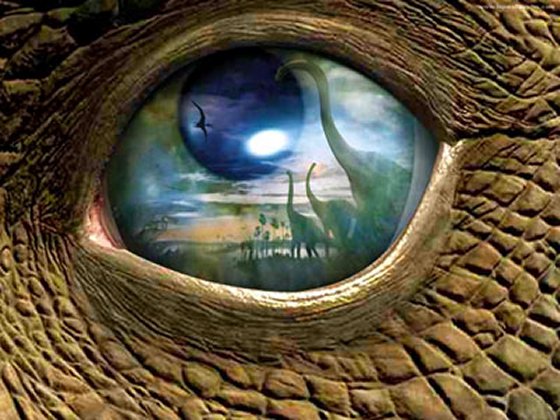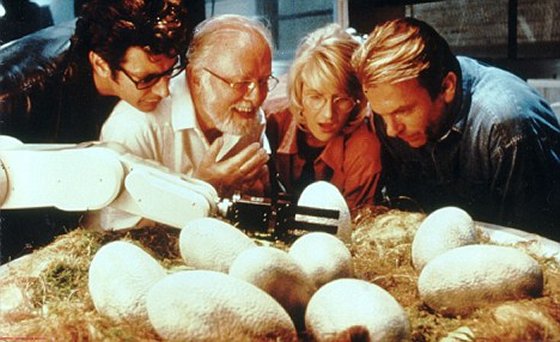Should Scientists Resurrect Dinosaurs, The Neanderthal Man And Other Extinct Species?
MessageToEagle.com – In Michael Crichton’s famous novel Jurassic Park dinosaurs are resurrected via genetic engineering.
Today’s technology allows scientists to bring dinosaurs and other extinct life-forms back to life as clones.
Now, scientists can even sequence the genes of the Neanderthal man, and at some point in the future it may be possible to bring him back.
Not long ago, researchers made an amazing biological breakthrough and successfully revived an ice age plant after more than three millennia.
But how is it possible to bring back dinosaurs and other extinct species back to life?
This question was recently answered by Dr. Michio Kaku who believes scientists have made remarkable fast progress in the area of epigenetics.
“We have taken cells from the carcass of an animal that died decades ago and brought them back to life and so it is possible using today’s technology to take bodies, carcasses of animals that died decades ago and resurrect them in the form of clones.
Now we have also sequenced the genes of the Neanderthal man, meaning that at some point in the future it may be possible to bring back the Neanderthal man.
In fact, at Harvard University one professor even made a proposal as to how much it would cost to reassemble the genome of the Neanderthal man.
And then of course, if a young Neanderthal boy is born then the question is where do you put the boy, in a zoo or at Harvard?” Dr Kaku said.
Now dinosaurs are much more difficult. They perished 65 million years ago, not tens of thousands of years ago.
See also:
Four Other Humans Species Lived Alongside Modern Humans – New Study Suggests
Kunbarrasaurus: New Armoured Dinosaur Revealed
New Species Of Dinosaur With Odd Sail-Like Structure On Its Back Discovered In Spain
However, something has happened that I thought would not happen in my lifetime and that is we have soft tissue from the dinosaurs. I never thought it would be possible in my lifetime. If you take a hadrosaur and crack open the thigh bones, bingo. You find soft tissue right there in the bone marrow.
Now there is another proposal to use what is called epigenetics. Nature does not simply throw away good genes. Nature simply turns them off. For example, we have the genes in our own body that would put hair all over our body and you can actually turn that gene and create, quote, unquote, a werewolf.

In fact, in Mexico City there are two young boys with hair all over their bodies that are acrobats in a circus and scientists have sequenced the genes and yes, it is a very ancient gene that they have.
With chickens we can actually see the genes for chickens that were turned off because of epigenetics, genes that give webbing between the toes of a chicken because a long time ago chickens had webbed feet and also teeth. You can actually bring back teeth inside chickens.

So then the question is, is it possible to make the next big leap to use epigenetics, to use gene therapy, to use all the different kinds of therapies we have, mix all these things up in the memory of a computer and have the computer give the best fit for a reptile that is like a dinosaur, insert that perhaps, into the womb of maybe an alligator or a whatever and perhaps give birth to an egg, which will hatch something resembling a dinosaur.
Well that’s not possible today, but it’s not out of the question. It’s not out of the question that at some point in the future we’ll use a computer to take all these bits of DNA from living lizards, from the-extracting information from the proteins of soft tissue from hadrosaurs and assemble the best mathematical approximation to a dinosaur and have it give birth to an egg.”
Of course, putting technology and all countless possibilities aside, scientists will also need to concern whether there are any ethical problems with creating such a genetic hybrid.
© MessageToEagle.com










